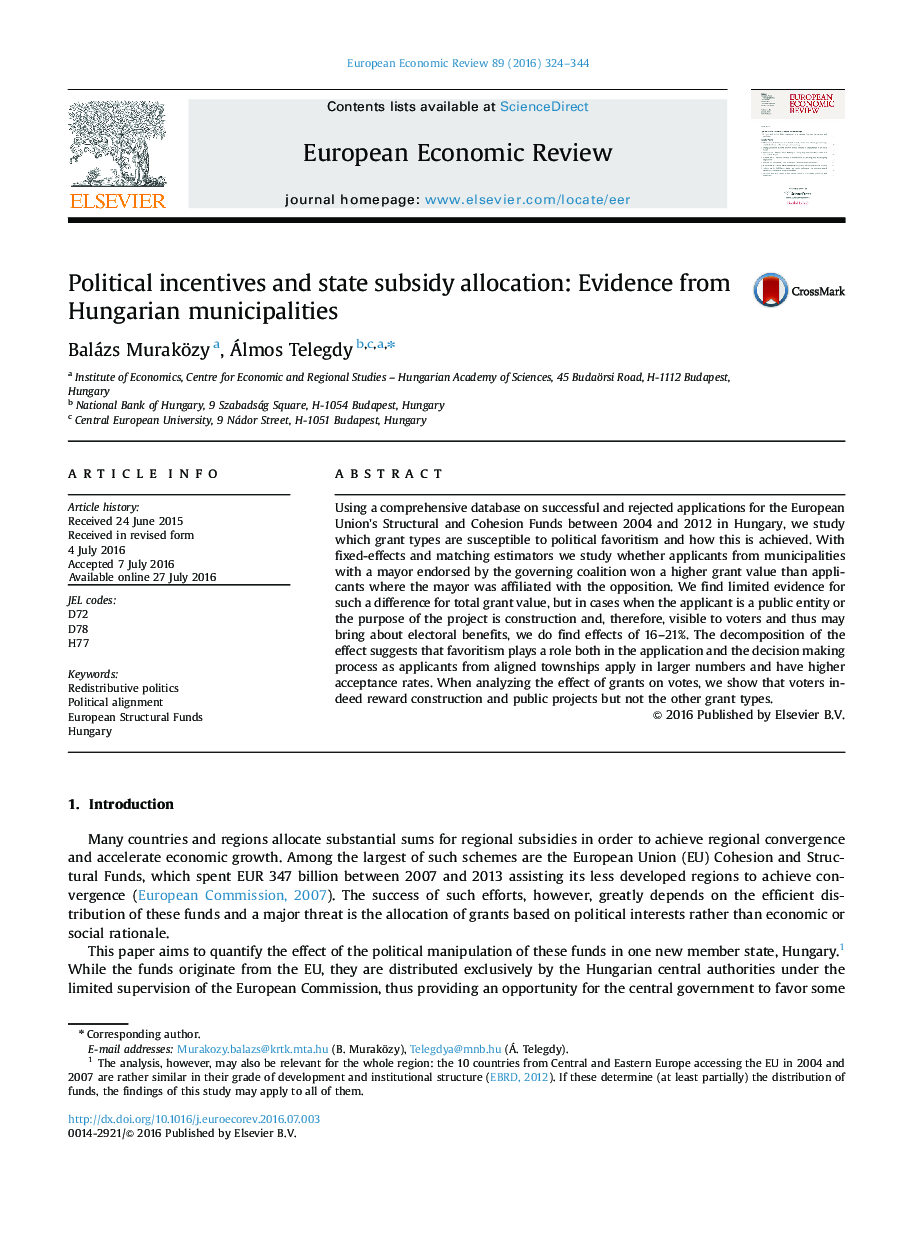| Article ID | Journal | Published Year | Pages | File Type |
|---|---|---|---|---|
| 5066458 | European Economic Review | 2016 | 21 Pages |
Using a comprehensive database on successful and rejected applications for the European Union's Structural and Cohesion Funds between 2004 and 2012 in Hungary, we study which grant types are susceptible to political favoritism and how this is achieved. With fixed-effects and matching estimators we study whether applicants from municipalities with a mayor endorsed by the governing coalition won a higher grant value than applicants where the mayor was affiliated with the opposition. We find limited evidence for such a difference for total grant value, but in cases when the applicant is a public entity or the purpose of the project is construction and, therefore, visible to voters and thus may bring about electoral benefits, we do find effects of 16-21%. The decomposition of the effect suggests that favoritism plays a role both in the application and the decision making process as applicants from aligned townships apply in larger numbers and have higher acceptance rates. When analyzing the effect of grants on votes, we show that voters indeed reward construction and public projects but not the other grant types.
